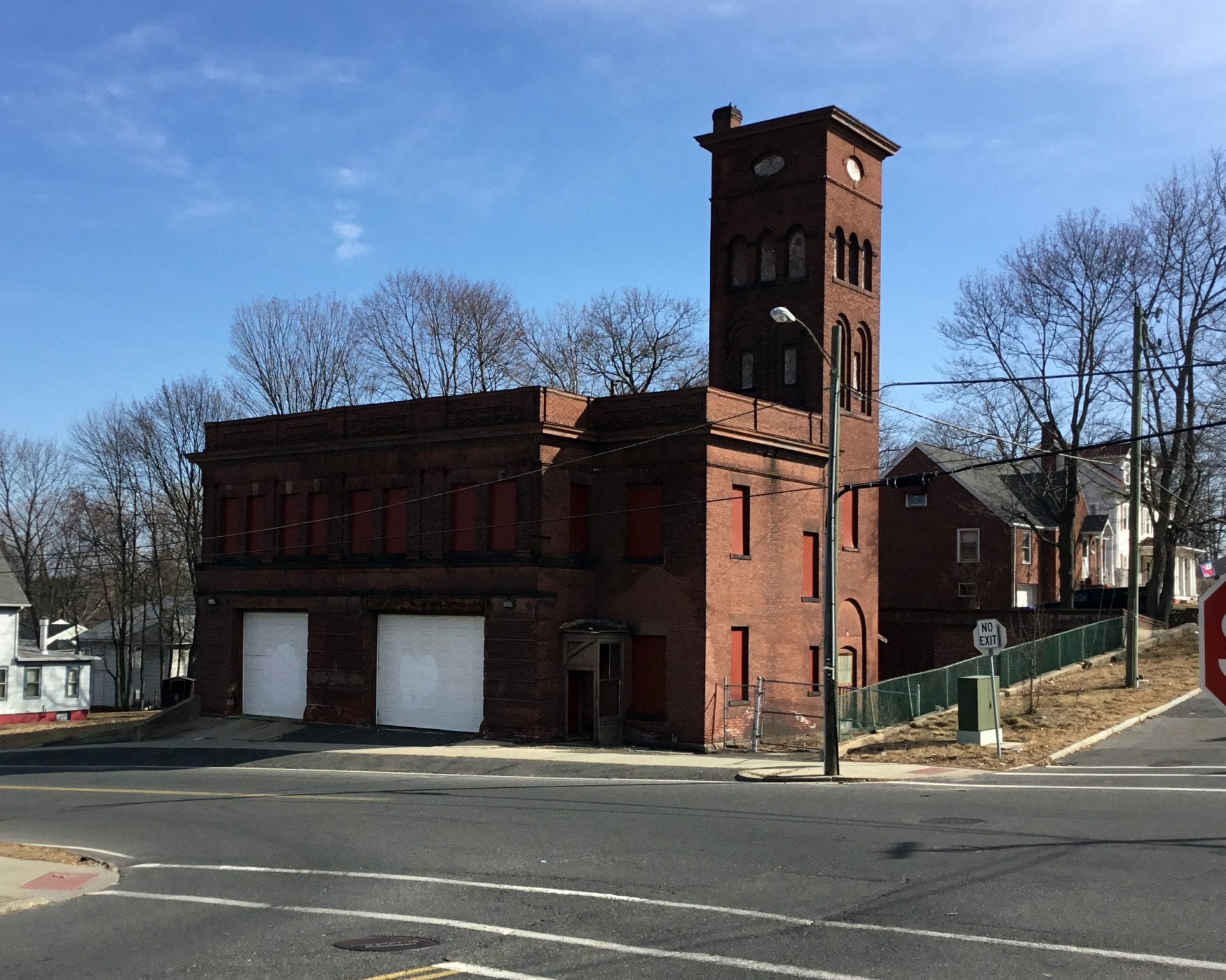Briefings: What’s in the Springfield Preservation Committee Goody Bag for FY24…?
UPDATED 8/11/23 10:01PM: For clarity on the Springfield CPC’s October 3 meeting purpose.

Chair Bob McCarroll and Conservation Commission CPC member Juanita Martinez at last year’s annual meeting. (still via Focus Springfield)
With $3 million on offer this year, the Springfield Community Preservation Committee (CPC) has released its recommendations for fiscal year 2024. The nine-member CPC reviews proposals for funds the city raises from a property tax surcharge and state disbursements. Springfield adopted the Community Preservation Act (CPA), a state law, in a referendum. The program authorizes funds outside the usual appropriation process for certain types of projects.
On October 3, the CPC will hold its annual public hearing to gather community feedback and write the next preservation plan. The City Council grants final approval to projects for this year. Normally, city funding arises from the mayor’s budget with the Council’s approval Under CPA, the committee reviews applications and forwards proposals to the Council. That body formally makes the appropriation. In a release, CPC previewed its FY2024 projects that range from historic façade improvements to expansion of conservation area to new housing.
Voters greenlit the program nearly seven years ago despite the opposition of Mayor Domenic Sarno. Once the electorate approved, though, the ordinance establishing the CPC had few problems, certainly in comparison to other cities.
Under CPA, communities can spend the funds on housing, historic preservation and conservation/open space (parks). At least 10% of funds must go to each of those categories. The city assesses a 1.5% surcharge of property tax bills to fund its end. By law, the state matches these funds, but historically Beacon Hill has underfunded its share. In recent years, the legislature has fired a money cannon into the program, hence Springfield’s rather sizable wad of CPA cash to distribute.
Since disbursements began in fiscal year 2018, nearly $13 million have funded 73 projects across the city. The CPC has also nudged several properties toward historic preservation. Committee members usually require historic grant applicants seek and secure historic district status before receiving the funds.
This year, the CPC is recommending projects ranging in price from $500,000 to $3,900. The six-figure items this year include $500,000 to expand Abbey Brook Conservation area. The money will fund a purchase of 5.3 acres.
Three more quarter million grants for parkland would fund improvements at Angelina Park, Alden Street Park and Myrtle Street Park.
On the historic preservation front, CPC is recommending $250,000 to stabilize and repair the former Indian Orchard fire station. The committee is also topping off its Historic Home Preservation Program to the tune of $250,000. The program allocates as much as $30,000 to restore historic homes in the city’s historic districts.

CPC wants to stabilize IO’s old, long-unused fire station. (via Springfield Preservation Trust)
Another quarter million has been proposed for the Gunn Block and Kilroy House each. The Gunn Block is at the corner of State and Walnut Street. The Kilroy House is on the Quadrangle.
Also on CPC’s historic preservation list is $151,000 for stabilization of 7-9 Stockbridge Street, including masonry, windows, doors and painting. Another $150,000 would fund exterior repairs to the Depression-era D’Amour Fine Arts Museum.
Several churches are in line for grants between $45,000 and $80,000. The candidates are Daniel’s New Bethel Church in the North End, Trinity United Methodist in Forest Park, and Immaculate Conception Catholic Church in Indian Orchard. All are for exterior repairs, thought Trinity will also repair street-facing stained glass windows. The Community Music School is in line for $14,740 in exterior repairs. The final historic grant recommendation is $3,900 for a porch at 113 Mill Street.
On the housing front, the CPC is recommending $210,000 to assist in the redevelopment of the former Kavanaugh Furniture Building. The proposal calls for the building to become 35 affordable one or two-bedroom units. Another $96,000 would contribute to the development of 40 new townhomes near the Gemini plant site. They would be marketed as affordable owner-occupied units.
Once the CPC formally approves the recommendations, the chair, Bob McCarroll will present them to the City Council. Usually, councilors approve the recommendations, but it is not unusual for the body to hold off on an item or two to undertake further review.